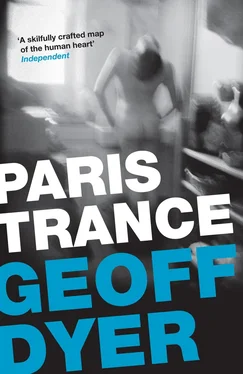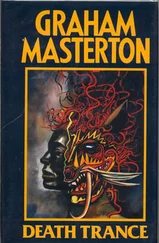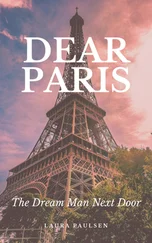‘Where are the cliffs?’ said Alex.
‘The sea.’
‘The coast.’
‘The edge.’
They walked on, coming eventually to a steeply rising bank which, they were sure, was all that separated them from the cliffs. For ten minutes they scrambled up the grass of the bank. Cresting it they saw a huge expanse of sky and, off to the right, a lighthouse perched on the edge of the coast. They continued across the grass that covered the last fifty metres of land. Sun poured into their faces. Luke looked at Nicole and Sahra. They had their arms round each other and were laughing hysterically at Alex who had taken off his jacket and was carrying it over one arm, walking briskly as if late for an important meeting. Sahra trotted over to him and they walked on, holding hands. Nicole ran over to Luke and kissed him, her eyes shiny with laughter.
She was speaking. Her voice took a long time to reach him. ‘Are you still with us, Trevor?’
A voice — his own, he assumed — said possibly not.
With every step they took towards the coast the light became stronger. The sky overhead burned a deep blue. The lighthouse gleamed whitely.
And then they were there. There was no more land. It stopped. They had come to the edge, could go no further. Sea and sky were lost in a luminous haze. There was no distance or direction, only the weightless flow of light. All sense of substance — of earth, weight, mass — was lost, as if they were suddenly back at the first moment of creation when this was all there was, a mingling of light and air: blue draining through gold, light dissolving into itself.
As Luke became used to the glare he could see boats floating in the blue sky. The laws of perspective melted in the intensity of the light. There was no sound of surf, no noise of wind. Overhead the shimmer of gold gave way to a deep, clear blue. He looked back at the green grass rolling away from the cliffs, cropped short by absent sheep. He lay on his back and looked up.
A military jet pulled through the sky, very high. Beyond that was the uncertain region where sky turned into space, where everything began to peter out, where distance ceased to be measured as space, only as light. The plane itself was no more than a dot, would probably have been invisible but for the vapour trail easing out behind it. He watched it race around the sky, following the curve of the earth in a long silent arc. The sound lagged behind, a rumble that was only now making itself heard in a part of the country the jet had passed over seconds before, miles inland, in one town or another.
The text contains the following samples from Fiesta (The Sun Also Rises) by Ernest Hemingway:
Pagelink :
‘There were lighted bars and late open shops on each side of the street.’
Pagelink :
‘a way of getting an intensity of feeling into shaking hands’
Pagelink :
Alex’s ‘glass was empty.’
Pagelink :
‘A man and a [woman] passed. They were walking with their arms around each other.’
Pagelink :
‘Across the river were the broken walls of old houses that were being torn down.’
Pagelink :
‘the music hit you as you went in’
Pagelink :
‘Lavigne’s was closed tight, and they were stacking the tables outside [. .] Lilas.’
Pagelink :
‘It was amazing champagne.’
Pagelink :
‘It was raining hard outside.’
Pagelink :
‘He took a big gulp of coffee’
These lines were quoted from the following sources:
Pagelink :
‘ O light. . their fate .’: Albert Camus, Selected Essays and Notebooks , Penguin, Harmondsworth, 1970, p. 152.
Pagelink :
‘a force of. . long nights.’: John Cheever, The Journals , Cape, London, 1991, p. 119.
Pagelink :
‘Happiness. . they lead.’: slightly misquoted from Camus, op cit ., p. 98.
Although this book is dedicated to two friends, I would also like to share it with Tim, Hania, Charlie, Rupert, and Ollie Gross. And Valeria, of course.
I would also like to thank Alexandra Pringle and Richard Beswick for their persistence, Antonia Hodgson for overseeing the manuscript’s progress, patiently and scrupulously, and Ethan Nosowsky for much-valued trans-Atlantic advice and friendship.












